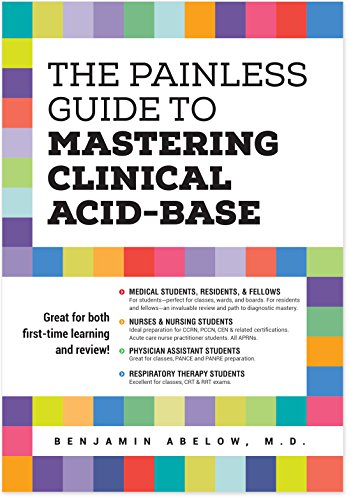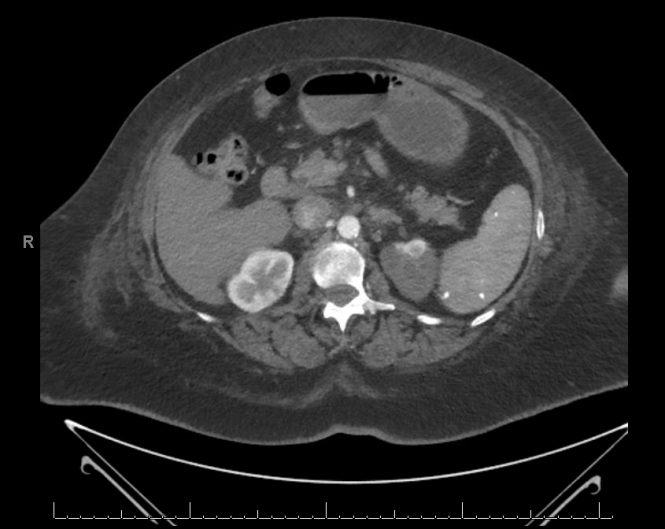Category: Nephrology
-

The Painless Guide to Mastering Clinical Acid-Base (2017)
The Painless Guide to Mastering Clinical Acid-Base (2017) is a 180-page introductory acid-base biochemistry book. The book is very clear and well written and hits on all the major aspects of acid base disorders in the context of their underlying biochemistry and pathophysiology. For example, the biochemistry of ketoacidosis is discussed in fine, precise and…
-

Medical Question: Flank Pain
A 60-year-old female presents to the emergency department complaining of intense left sided-flank pain radiating to the groin. Urinalysis is positive for gross hematuria, while a non-contrast CT of the abdomen and pelvis is negative for stones. The patient is sent for a contrast CT of the abdomen and pelvic, from which the following image is…
-
Hypocomplementemia: Key Points and Mnemonics
You don’t need to memorize which glomerulonephritides are associate with low complement and which are not. Rather, ask yourself one question: does this patient have persistent, aggressive, endovascular, systemic infectious or inflammatory processes? If the answer is “yes,” then the disease is associate with low complement levels. If the answer is “no,” then complement level…
-
Hypermineralocorticoidism Explained
Introduction Aldosterone is the most important mineralocorticoid in the human body, although various other hormones, such as cortisol, display mineralocorticoid activity as well, namely they cause hypertension, hypokalemia, and chloride resistant metabolic alkalosis (urine chloride > 20). In addition, mineralocorticoids can also cause hypernatremia and hypervolemia. The triad of hypertension, and hypokalemia and chloride resistant metabolic alkalosis should…
